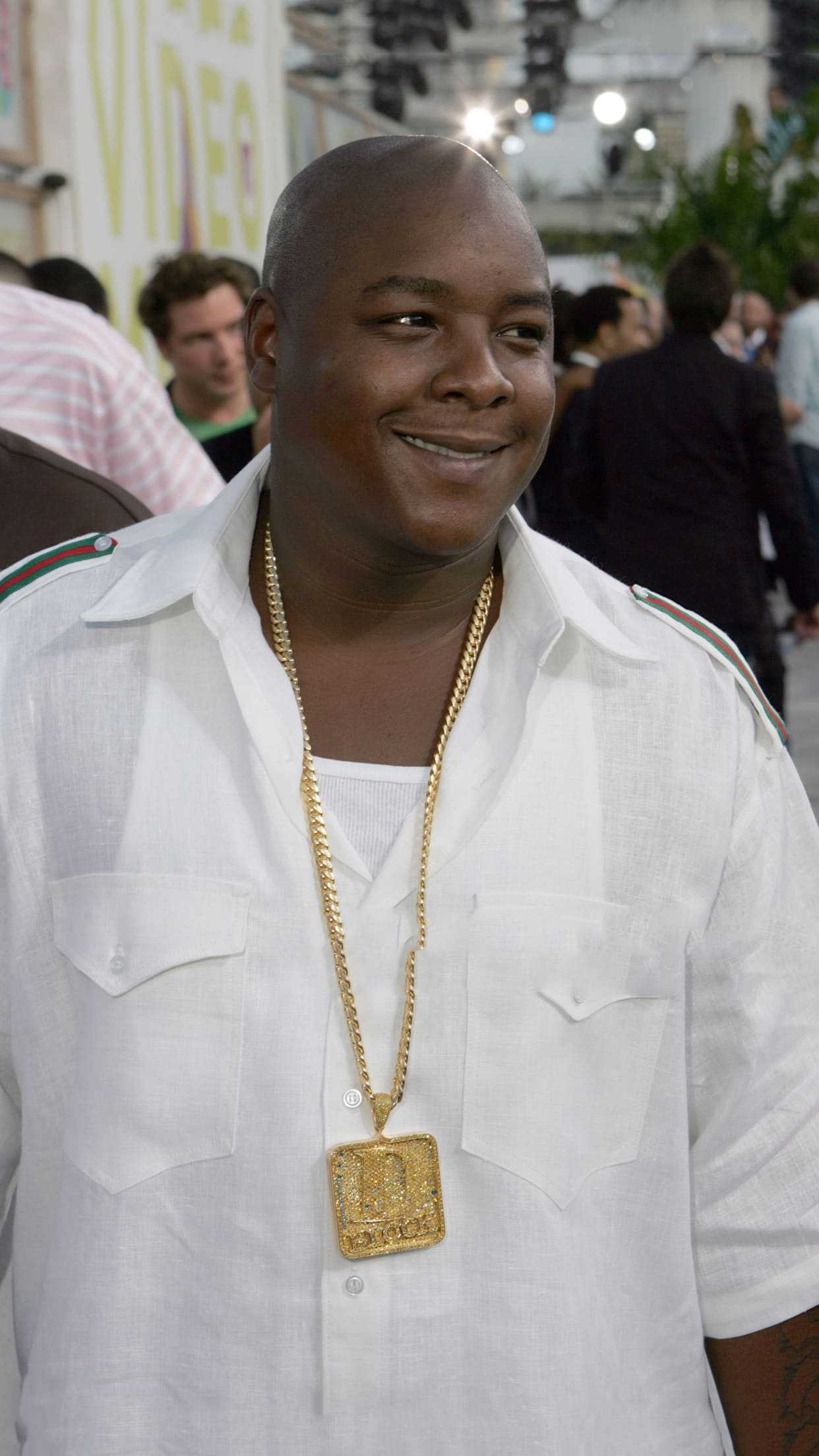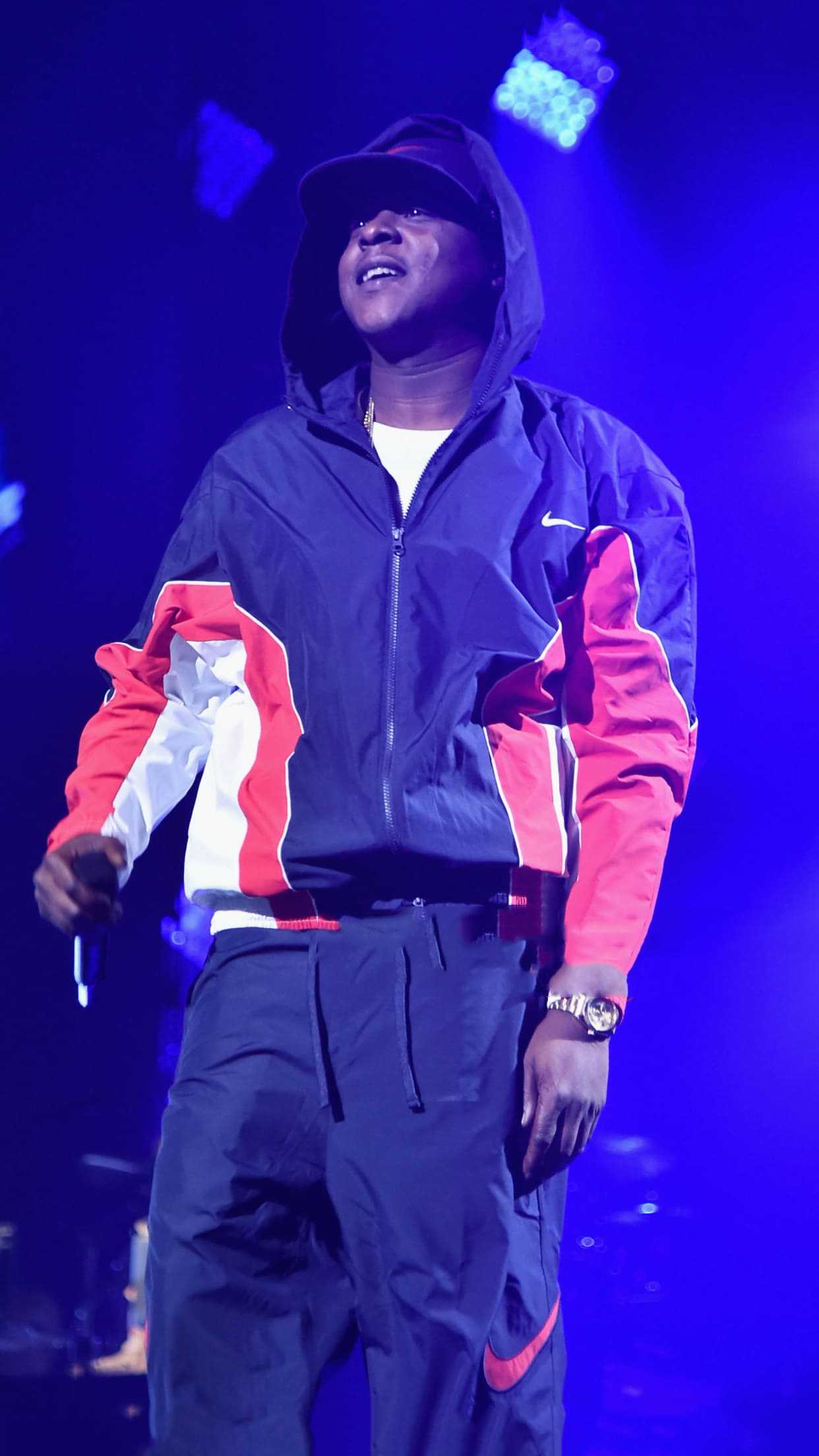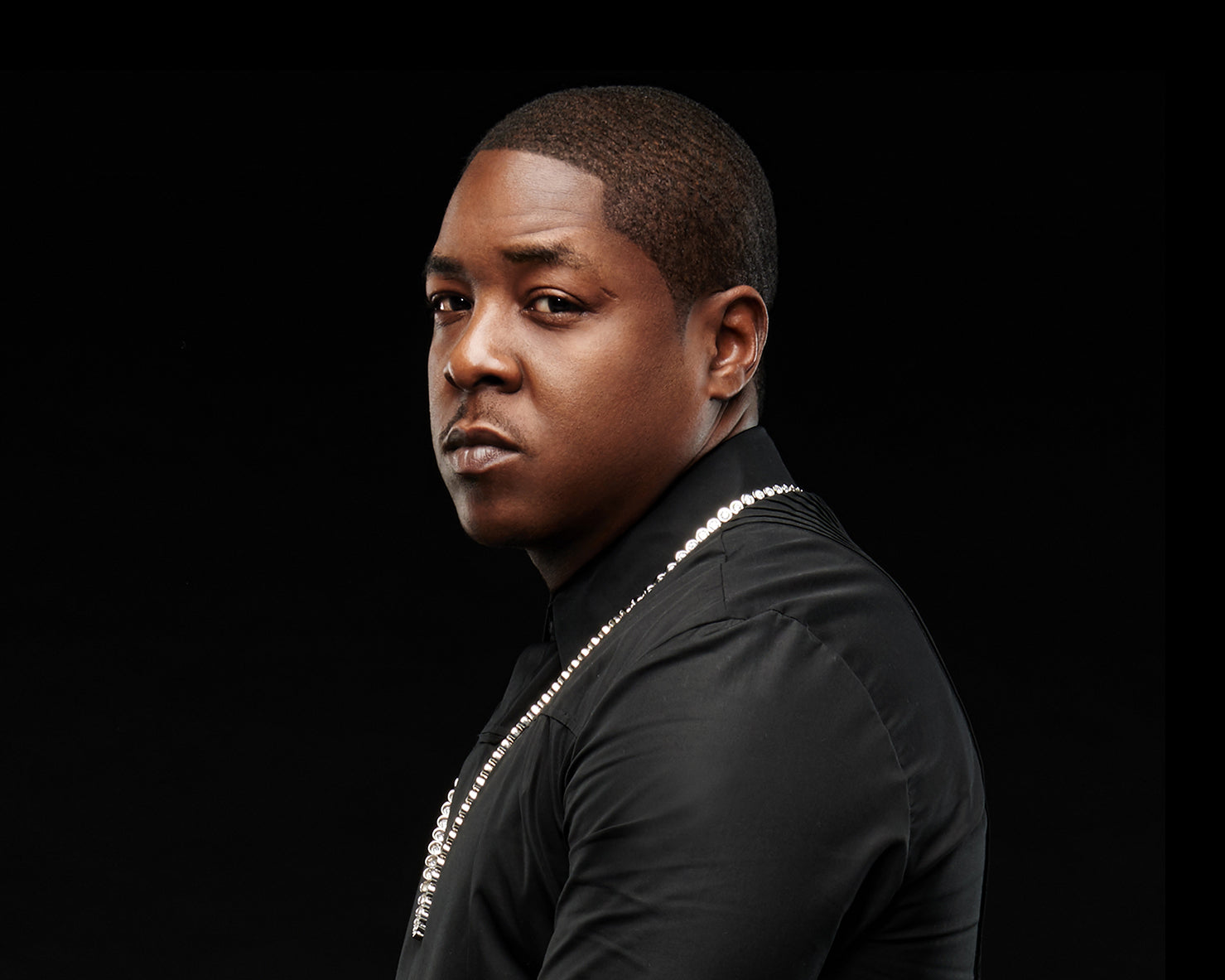Jadakiss - Unpacking The Voice Of The Streets
There are voices in music that just hit different, you know? They carry a certain weight, a feeling that sticks with you long after the beat fades. For many who follow the sounds of hip-hop, that voice belongs to Jadakiss. He's a figure whose words often paint vivid pictures, making you stop and consider things. His approach to rapping, with its unique rhythm and candid delivery, has truly made a lasting mark on the soundscape of popular music.
His rhymes often touch on real-world situations, from the everyday grind to bigger questions about how the world works. It's almost like he's having a conversation with you, sharing observations and thoughts that resonate. You might find yourself nodding along, thinking, "Yeah, that makes a lot of sense." His way of putting things across, sometimes with a quiet intensity, sometimes with a more direct challenge, seems to connect with people on a very personal level.
This artist has a way of cutting through the noise, getting right to the core of what he wants to say. Whether he's talking about personal experiences or broader societal issues, his expressions always feel genuine. It's that honest connection, that raw reflection of life as he sees it, which keeps listeners coming back to hear what he has to say next. His contributions have certainly shaped a part of the cultural conversation around music.
Table of Contents
- Biography
- The Artistry of Jadakiss
- Challenges and Perspectives
- Loyalty and Life Lessons
- Confrontation and Response
- The Weight of the Crown
- A Look at Collaborations
- The Enduring Presence
Biography
The journey of an artist often begins with a deep connection to their surroundings, and for Jadakiss, that connection has always seemed very real. His story is one woven into the fabric of a particular sound and place, a reflection of experiences that shape a person's outlook. From his early days, he carved out a distinct sound, a way of speaking his mind that set him apart. It's that authentic expression, you know, that really draws people in and keeps them listening to what he has to say.
His presence in the music world has been consistent, building a reputation for someone who delivers rhymes with a certain kind of force. He's a person who, through his art, appears to share his personal history and observations, giving listeners a glimpse into his world. This approach has allowed him to build a following that appreciates his straight-talking style and the genuine feelings he puts into his words. He has, in a way, become a representative voice for many who relate to his experiences and perspectives.
Personal Details
While an artist's public persona often tells one part of the story, there are always some personal details that help paint a more complete picture. For someone like Jadakiss, these bits of information, even if general, contribute to the overall impression of the individual behind the microphone. We can consider some basic points about his background, which, more or less, lay the groundwork for his artistic output.
| Detail | Information |
|---|---|
| Full Name | Jason Terrance Phillips |
| Born | May 27, 1975 |
| Place of Birth | Yonkers, New York |
| Occupation | Recording Artist |
| Years Active | Late 1990s - Present |
| Associated Acts | The Lox, Ruff Ryders |
The Artistry of Jadakiss
When you listen to Jadakiss, there's a certain quality to his delivery that just grabs your attention. It's a style that feels both unhurried and incredibly precise, almost like every word has its own place and purpose. People often talk about his "master flow," suggesting a level of skill that's been honed over many years. This isn't just about rhyming words; it's about how he shapes sentences, how he pauses, and how he emphasizes certain ideas, all of which contribute to a powerful overall effect.
He has a way of making complex thoughts sound simple, and simple thoughts sound profound. This ability to communicate directly, yet with layers of meaning, is a true sign of his artistry. You might hear him say, "y'all know i got the master flow, fast or slow," and it just clicks. It's a statement of confidence, sure, but it also points to a command over his craft, a versatility that allows him to adapt his rhythm and pace to whatever the moment needs. That, in itself, is pretty impressive, you know?
What Makes Jadakiss's Flow So Compelling?
So, what exactly is it about Jadakiss's way of rapping that keeps people so captivated? Well, for one thing, there's a distinct gravelly quality to his voice, a texture that gives his words extra weight. But it's more than just the sound of his voice; it's how he uses it. He has a knack for creating a feeling of genuine conversation, even when he's delivering some pretty heavy ideas. He's able to move from a calm, collected tone to something more urgent without missing a beat, which is actually quite difficult to do.
Consider the lines where he says, "y'all wanna know who the best is, Ask ya ho the honies don't lie they love it and they cop for real, so trust me." This kind of direct, almost conversational challenge, combined with a touch of playful bravado, is a signature part of his appeal. It's confident, a little bit cheeky, and it feels very much like him. This approach, which mixes personal opinion with a sense of playful self-assurance, makes his performances truly memorable. It's a style that, in some respects, invites you into his world and makes you feel like you're part of the conversation.
Challenges and Perspectives
The life of an artist, especially one who speaks truth to power, often involves facing a unique set of challenges. Jadakiss, through his lyrics, has often touched on these very real struggles, particularly those related to the business side of music. There's a recurring theme in his words about the financial aspects of being a creative person, and how sometimes, the structures in place seem to work against the artists themselves. It's a perspective that many can relate to, especially anyone who has felt the squeeze of a system that appears designed to hold you back.
He poses questions that make you think about the deeper workings of the industry, almost as if he's pulling back the curtain a little bit. When he asks, "Why is the industry designed to keep the artist in debt?", it's not just a casual question; it's a statement that hints at a larger issue. This question brings to light the constant pressure many artists feel to keep creating, to keep performing, just to stay afloat. It suggests a cycle where financial obligations can overshadow the pure love of making music, which is a pretty heavy thought, you know?
Why Does the Industry Keep Artists in Debt?
This question, posed by Jadakiss, really gets to the core of some long-standing issues within the music business. It suggests that there might be built-in systems or ways of operating that make it hard for artists to truly gain financial freedom. Think about it: a person pours their heart and soul into their craft, creates something that moves people, and yet they might find themselves constantly chasing money, always owing someone something. This idea points to a potential imbalance of power, where the creative individual might not always receive a fair share of the profits generated by their work.
The question also implies a kind of frustration with the way things are set up. It's like asking, "Is this truly fair?" or "Is there another way?" For an artist like Jadakiss, who has seen a lot of the inner workings of the business, this observation probably comes from a place of real experience. It's a call to consider the economic pressures that can weigh down creative spirits, making it harder for them to simply focus on their art. This line of thought, in some respects, invites a wider conversation about fairness and sustainability for artists within a commercial setting.
Loyalty and Life Lessons
Beyond the critiques of the music business, Jadakiss often touches on themes of loyalty and what it means to truly stand by someone. His words often carry a sense of skepticism about fair-weather friends or those who are only around when things are going well. He asks questions that get to the heart of true commitment, making you think about who you can really count on when times get tough. This focus on genuine connection and unwavering support is a recurring thread in his expressions, and it speaks to a deeper understanding of human relationships.
He seems to value actions over mere words, hinting that real allegiance is shown through consistent behavior, not just empty promises. When he questions, "And why them dudes ain't ridin' if they," it's a direct challenge to those who claim loyalty but fail to show up when it truly matters. This kind of frankness is a hallmark of his style, offering observations that might make you reflect on your own experiences with trust and dependability. It's a pretty straightforward way of looking at things, you know, but it holds a lot of truth.
How Does Jadakiss View True Allegiance?
It appears that for Jadakiss, true allegiance isn't just about saying the right words; it's about consistent action and a deep sense of shared purpose. He seems to value a kind of loyalty that goes beyond surface-level interactions, a commitment that stands strong even when circumstances become difficult. This perspective is clearly shown in his thoughts about personal independence and not relying on others for basic needs. He makes a point about taking care of his own, saying, "i don't like to rent so when i fly now, i bring my cars on the plane with me in this case, who's the loser." This line, in a way, speaks volumes about self-reliance and the idea that true strength comes from being able to handle your own affairs.
This approach suggests that a person who is truly dependable will not leave you hanging, nor will they expect you to carry their weight. It's about mutual respect and a willingness to put in the effort required to maintain a strong bond. The question of "who's the loser" in his example about bringing his own cars, highlights a subtle jab at those who might depend on others or lack foresight. It underscores a belief that genuine relationships are built on a foundation of shared commitment and a clear understanding of what it means to truly be there for someone. This idea, you know, resonates with a lot of people who appreciate honesty in their connections.
Confrontation and Response
The world of music, especially certain kinds of hip-hop, has a long history of lyrical sparring, where artists use their words to challenge or respond to others. Jadakiss has certainly been a part of this tradition, using his sharp wit and direct delivery to make his points. When another artist aims a lyrical jab, a true wordsmith knows how to respond with precision and impact. It's a kind of verbal chess, where every move is carefully considered to make the strongest statement possible. This back-and-forth can often be quite compelling for listeners, as they get to witness a display of lyrical skill and clever wordplay.
One notable instance of this was his response to 50 Cent's song "Piggy Bank." In that track, 50 Cent had some strong words for Jadakiss, saying, "Jada, don’t fuck with me, if you wanna eat ‘cause i’ll do yo’ little ass like jay." This kind of direct challenge calls for an equally direct and powerful reply. It's a moment where an artist's ability to craft a compelling counter-argument, using their own distinct voice, truly comes into play. The art of the lyrical response is, in some respects, a test of an artist's quick thinking and mastery of their craft.
Exploring Jadakiss's Poetic Comebacks
When it comes to responding to a lyrical challenge, Jadakiss shows a certain kind of poetic flair, even in moments of direct confrontation. His comebacks are not just about throwing insults; they often carry a deeper meaning or a clever twist that makes them memorable. It's like he's saying, "I hear what you're saying, and here's my thoughtful, yet forceful, reply." This approach gives his responses a weight that goes beyond simple aggression, making them stand out in the often heated exchanges of the music world.
The sample lines like, "i love you too much to lose your sweet touch and your love i'd find you by your side, by your side i love you too much to lose your sweet touch and your love i'd," could be seen as a clever juxtaposition. Placed near a confrontational line, it might imply a sense of unwavering self-love or a steadfast loyalty to his own principles, even when facing opposition. It's a subtle way of saying that some things are too important to lose, even in the midst of conflict. This use of seemingly gentle language in a hard context, actually, makes his message even more striking. It shows a thoughtful mind at work, using words in unexpected ways to deliver a powerful message.
The Weight of the Crown
Being a prominent voice in music often comes with a certain kind of pressure, a constant expectation to deliver, to stay relevant, and to speak your mind. Jadakiss seems to carry this weight with a unique blend of street wisdom and philosophical inquiry. His lyrics sometimes delve into the deeper motivations behind actions, questioning why things are the way they are, and what truly drives a person forward. It's a reflection of a mind that doesn't just accept things at face value but seeks to understand the underlying currents of life.
The lines "danger, danger, money on his head top (woo) it's danger, danger, money on his head top (yeah) murder on my mind (yeah), one at a time (ah) i don't give," delivered with Swizz Beatz, show a mindset that's accustomed to

Jadakiss Wallpaper - iXpap

Jadakiss Wallpaper - iXpap

Jadakiss - Def Jam | Official Store